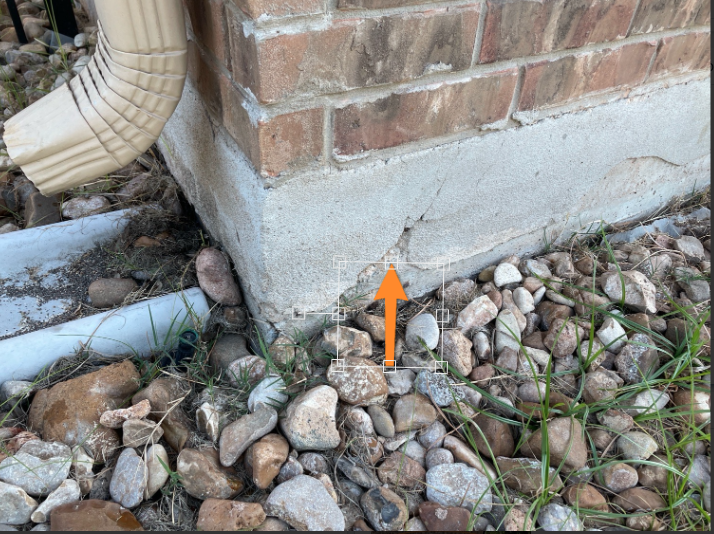Inside the Inspection
foundation inspections
When it comes to buying a home in Texas, a foundation inspection is one of the most critical parts of the home inspection process. A solid foundation supports the entire structure. If it’s compromised, even small issues can lead to costly repairs and major headaches down the road.
What a Foundation Inspection Includes
During a standard home inspection, the foundation is evaluated for signs of movement, cracking, moisture intrusion, and structural instability. The inspector looks at:
Visible cracks in walls, floors, and ceilings
Sloping or uneven floors
Gaps around doors and windows
Exterior brick or siding separations
Signs of previous foundation repair work
Drainage and grading issues that may affect the foundation
These observations help identify whether the foundation is performing as intended or if further evaluation may be needed.
Why Foundation Inspections Are Especially Important in Texas
In Central Texas, foundation inspections are especially critical because of our expansive clay soils, unpredictable weather and hot-as-Hades summers. The clay found here swells when wet and shrinks dramatically during dry periods. That constant movement creates stress on a home’s foundation, leading to cracking, uneven settling, or misaligned doors and windows over time.
Rapid shifts between heavy rainfall and long, hot (HOT) dry spells only make matters worse. If a home’s drainage isn’t properly managed, water can collect near the foundation during storms and then disappear in drought conditions, amplifying soil movement.
Other local factors add risk too. Older homes may have shallower or less reinforced foundations, while large trees near the house can draw moisture unevenly from the soil, causing one side of the foundation to settle faster than the other. All these conditions make a thorough foundation inspection essential for identifying early warning signs before they become major structural problems.
Elevation Measurement Inspections: Going Deeper
While a standard foundation inspection relies on visual and functional clues, an elevation measurement inspection provides a more precise evaluation. Using specialized equipment, inspectors measure the elevation of floors throughout the home to detect subtle variations that may not be visible. This type of inspection is especially valuable for older homes, properties with visible movement, or houses that have had previous foundation work. It’s also a smart choice for higher-end homes where repair costs would be significant.
Additionally, elevation measurements can reveal patterns of settling or tilting that a visual inspection alone might miss. These measurements help determine whether foundation movement is ongoing or has stabilized, giving buyers a clearer picture of long-term structural risk. For homebuyers investing in properties with unique architectural features, slabs built on variable soil, or homes in high-risk clay areas, including an elevation measurement as part of a foundation inspection can provide critical peace of mind and support informed purchase decisions. First Responding Home Inspections offers elevation measurements as an add-on service for any home inspection.
Word on the Street


